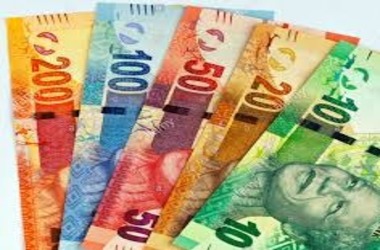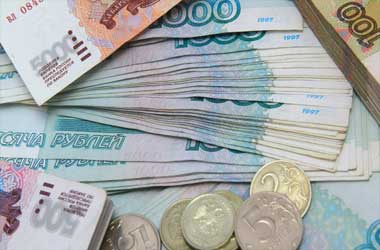 The South African rand weakened above the 18 level against the greenback Friday as investors were worried that tensions between Beijing and Washington could heighten further after China made initiatives to implement a fresh security law in Hong Kong.
The South African rand weakened above the 18 level against the greenback Friday as investors were worried that tensions between Beijing and Washington could heighten further after China made initiatives to implement a fresh security law in Hong Kong.
Last week, the rand hit the highest mark since March 27th after a 50 basis point rate cut was announced by the South African central bank in order to support the ailing economy hit by Covid-19 pandemic. Traders had anticipated a deeper rate cut of 100 basis points.
The country’s central bank trimmed its benchmark repo rate by 50 basis points to 3.75% during its May meeting. The initiative has come after a 100 basis points rate cut in April’s urgent meeting, bringing lending costs to historical low, against the backdrop of Covid-19 issue.
Lawmakers stated that monetary policy can relieve financial stress, while improving enabling households and companies to manage negative impact of the pandemic in an effective way.
The Committee also eased regulatory criteria to be followed by banks and stated that it has taken crucial measures to guarantee enough liquidity in domestic markets.
Policymakers anticipate a 7% GDP contraction in 2020, even if lock down prohibitions are relaxed in the coming months. The Committee pointed out that economic contraction and steady rebound will maintain inflation beneath the median of the target range.
Legislators stated that they will track data on an ongoing basis and will monitor for short-term price jolts and concentrate on next round impacts.
South Africa’s retail sales rose 2% y-o-y in February, following an upwardly amended 1.3% increase in January and exceeding market anticipations for a 1.2% increase as sales rose quicker for all other retailers (8.9% in February compared with 4.8% previous month) and general dealers (1.3% versus 0.3%).
In the meantime, small increases were recorded in those of food, beverages & tobacco (1% compared with 4.7%), textiles, clothing, footwear & leather goods (1.5% versus 2.1%) and household furniture, appliances & equipment (down to 4.7% from 6.4%). On a m-o-m basis, retail sales dropped 0.4%, after a downwardly amended 0.5% growth in the earlier month.
South Africa’s manufacturing production declined 2.1% y-o-y in February, following a downwardly amended 1.8% fall and in accordance with market anticipations of a 2.2% drop. It was the ninth successive month of decrease in industrial activity.
The decline in output was driven by poor performance of iron & steel, metal products & machinery, and non-ferrous metal products (-4.8% in February compared with -0.8% in January), wood & wood products, paper, printing and publishing (-6.3% against -6.6%), textiles, clothing, leather & footwear (-9.1% versus -9.9%), glass and non-metallic mineral products (-9.1% compared with -1.3%) and motor vehicles (-3% compared with -11.7%).
The only exclusions were the manufacture of petroleum, chemical products, rubber & plastic products (0.3% compared with -0.7%) and food & beverages (2.2% versus 1.4%). On m-o-m basis, industrial production contracted 2.3% after an upwardly amended 3% increase in the earlier month.




